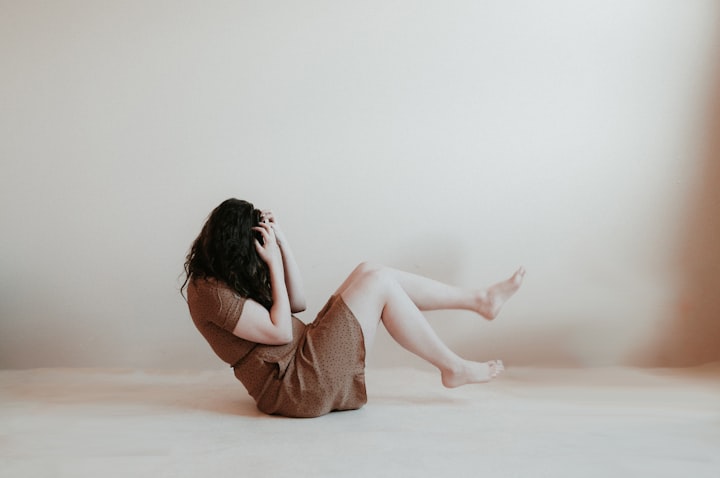How Your Phobias And Anxiety Interfere With Daily Activities
How to Get Rid of Anxiety?

What is Anxiety?
Anxiety is the fear that you are going to suffer some sort of loss or consequence, or you are going to be embarrassed by something. Examples of anxiety disorders include general anxiety disorder, panic disorder (anxiety attack), obsessive compulsive disorder (OCD), post-traumatic stress disorder (PTSD), and specific phobias. In most cases, you can also have more than one anxiety disease.
Anxiety Disorder and Phobias
Specific anxiety disorders include hot flashes, physical attacks, blushing, trembling, and rapid heart beat. Generalized anxiety is a common condition where you are always anxious about having a specific situation occur.
This situation could be a job interview, a date with a significant other, a trip somewhere, or even buying groceries. Most people who have generalized anxiety feel tense all the time. They worry about whether they will have enough gas in their car, which can lead to being late for work.
Many people who suffer from anxiety have phobias. Phobias are the irrational fear of certain things such as water, spiders, snakes, and big animals. People who have specific phobias avoid these objects on a regular basis.
Symptoms of Anxiety
Symptoms of social anxiety disorders can include blushing, pounding heart rate, trembling, muscle tension, nausea, and a lack of control over your movements. People who have these feelings often have a hard time making and sustaining eye contact.
Others experience feelings of fear of being humiliated or judged by others. People who worry too much and are afraid that they are not controlling their reactions often have an anxiety attack because they are worried about how they will behave.
Types of Anxiety Disorder and Phobias
There are two types of generalized anxiety disorders. They are characterized by physical symptoms as well as mental symptoms. People who suffer from such disorders experience muscle tension, headaches, nausea, sweating, restlessness, and irritability. Some people only experience mental symptoms such as feeling anxious all the time or having panic attacks, but others go through physical symptoms as well.
Physical Anxiety Disorder
Generalized anxiety disorder is caused by fear and worry that leads to unrealistic worries about money, health, career, and other issues. When you have unrealistic worries that lead to excessive levels of stress, you are considered to have an anxiety attack.
You experience physical symptoms such as headache, tension, dizziness, stomach ache, stomach pain, nervousness, upset stomach, upset voice, shortness of breath, trembling, chest pains, rapid breathing, choking sensation, lightheadedness, and many more. When you are in a situation where there is too much pressure on you cannot relax because of the mental stress, you are considered to have a panic attack.
Phobias
Specific phobias are experienced when a person has to confront a specific incident that they are afraid of. Triggers are events or circumstances that bring about extreme reaction. Some common trigger anxiety disorders include phobias, social phobias, post traumatic stress, pregnancy, death in the family, divorce, loss of a loved one, and many more. There are various treatment options available for treating anxiety disorders.
If you want to prevent from having any anxiety attacks, you should first identify the cause of your worries and avoid these triggers. Avoid exposing yourself to stressful situations if possible.
If you feel that you cannot avoid having a certain worry, try to get over it by doing something else. If you cannot get over a particular worry, you should visit your doctor so that you will be advised to take medication and to ask for counseling.
One of the common social phobias is blushing. People who suffer with social anxiety disorder have abnormal fear when they have to face certain social situations.
When people are faced with social situations they might blush due to the irrational fear that they might get humiliated or judged. Blushing can also be a sign of low self-esteem, which can make people feel insecure and inadequate. A great solution to eliminate this social anxiety disorder is to undergo psychotherapy.
Panic Anxiety Disorder
Another type of anxiety is panic. A panic attack is a sudden feeling of fear which causes intense fear and anxiety. People who have panic attack might experience chest pain, rapid heartbeat, and sweating. When these feelings get worse, people start worrying that they are going to die or get into a life-threatening situation. Anxiety and panic interfere with daily activities and people with anxiety and panic are constantly in fear of future attacks.
People who have hyperventilation can inhale more oxygen and this increased amount of oxygen dilates the bronchial tubes, which increases the amount of carbon dioxide released by the body.
The more carbon dioxide released by the body, the faster the heart rate and the higher blood pressure became. When the body is subjected to hyperventilation it causes dizziness and a feeling of faintness.
These symptoms caused by anxiety and the other types of phobias are very disabling and restrict one's movements so much that they can lose their job if they can't go on working. Dizziness, faintness, and lack of concentration are the common symptoms brought about by hyperventilation.
How to Get Rid of Anxiety?
If you're feeling anxious for whatever reason and just got a gut feeling of fear or of no cause, you could be suffering from an anxiety disorder.
Confront the Situation
The very first step towards curing anxiety is to talk about it and confront it. Only when you admit to yourself that having anxiety without a specific cause isn't healthy is it possible to find the cures for how to get rid of anxiety or how to get rid of a panic attack? When you start treatment you will be able to overcome your problem in the comfort of your own home.
People suffer from Anxiety in varying degrees. For some it can be barely noticeable. They may not feel nervous at all and can go about their day feeling totally fine. Others suffer from extreme cases of anxiety, which could lead to panic attacks. It really depends on the person, what kind of experience they have had. Some people just don't feel anxiety symptoms and they never even realize they have them.
Deep Breathing
Now that you know the root of your problem you have to try and find ways of addressing it. One effective way of controlling anxiety attacks is to make use of deep breathing techniques. Deep breathing is a method that is used in case of a panic attack by many people.
Visit Doctor
When you're having an anxiety attack, you tend to hyperventilate. This is the body rushing towards a panic attack, as it doesn't know what to do with itself. To combat this problem a professional help is required. You can find professional help by visiting your local doctor or by joining a support group. This can be done through online support groups too.
Therapy Session
If you need more intense assistance you can also turn to therapy sessions. There are people who specialize in getting anxious disorders cured. Some people just don't want to go through the pain of seeing a therapist on a regular basis. They would rather go to a doctor for this kind of problem and pay a few dollars for their anxiety disorder medication than to see a therapist on a regular basis. However you look at it, this is a personal choice that only you can make.
Medication
Medication is the last resort, people tend to look to when faced with the issue of getting rid of their anxiety disorder. These medications can be in the form of prescription drugs and also over the counter.
The prescription drugs tend to be more effective. An anxiety attack can be stopped in its tracks by taking prescribed drugs. People who suffer from the anxiety disorder usually have an underlying mental disorder like depression or bipolar disorder and need these stronger prescriptions. Over the counter drugs are not that effective, and some can cause further problems after they have been taken in.
Self-Help
Many people are now turning to self-treatment. They believe that this is how to get rid of Anxiety Attacks. Self-help can come in many forms. From doing breathing exercises to practicing yoga, these self treatments can take you far. They may require daily or weekly effort, but in most cases the results are great and very worth it.
Ayurvedic Medicines
Ayurvedic medicines for anxiety has become trend now a days, it had dealt the serious cases also quickly. As Ayurveda is most promising field of medication that leads to disease down so quickly. It reduces the symptoms and release the stress. Few medicines have been already up to the notch.
For more details Visit the website thewitfire
About the Creator
Dr. Yogesh Kumar
As an esteemed pharmaceutical scientist and genetic toxicologist, I am dedicated to pioneering advancements in drug delivery systems and therapeutic solutions, with a deep-rooted passion for innovation in genetic toxicology.






Comments
There are no comments for this story
Be the first to respond and start the conversation.